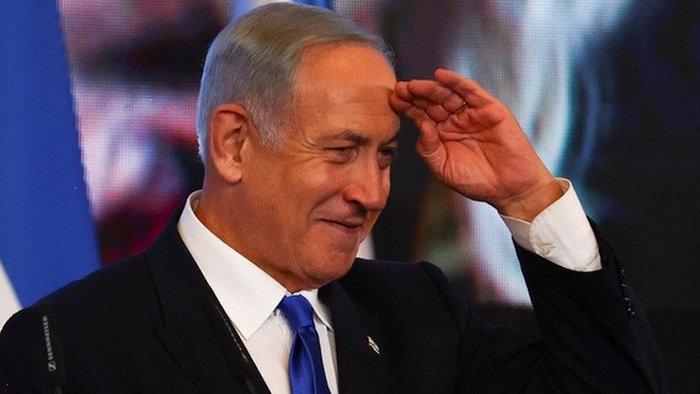Israelis stage giant protest against Netanyahu court reform
- Published
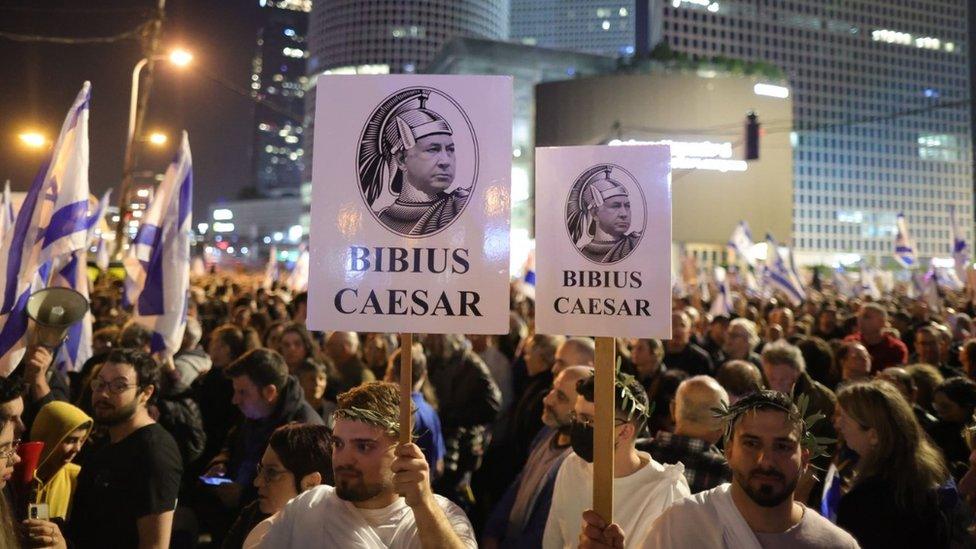
Protesters liken "Bibi" Netanyahu to an all-powerful Roman emperor
An estimated 110,000 people have packed the streets of Tel Aviv, in one of Israel's biggest anti-government protests in the past decade.
The rallies spread across the city centre as banners were hoisted calling for an end to the ruling coalition, which is the most right-wing and religious-nationalist in Israel's history.
"This is a dangerous government," said Yaara Ben Geraluf, a teacher from Jaffa, a western suburb on the coast.
"This government will not be any good for women, for LGBTQ, for the impoverished people… and of course for Palestinians," she told the BBC.
Organisers say they are trying to stop a "coup" taking place against the system of government.
It is the second week running that mass protests have taken place in four different cities.
Opposition leader Yair Lapid addressed the crowds in Tel Aviv, saying "people who love the country" came to defend its democracy and its courts.
"We won't give up until we win," he said.
It comes three weeks after Prime Minister Benjamin Netanyahu returned to power, to form Israel's first stable coalition in three years. He said Israelis voted for a "full" right-wing government and for security.
His coalition contains far-right parties, including one whose leader was once convicted of anti-Arab racism, and another who is openly homophobic and misogynistic.
Protesters accuse Mr Netanyahu of threatening democratic rule, amid an unprecedented clash between the new government and Israel's judges.
The coalition's planned reforms would allow it to override the courts if they strike down future laws. Opponents say this threatens Israel's democratic system of checks and balances.
Critics also say Mr Netanyahu, who is on trial for corruption, is trying to rein in the judges in an ultimate attempt to avoid going to jail himself.
Watch: Drone footage shows protesters takeover of central Tel Aviv
Many protesters also bitterly oppose positions from a coalition which includes overtly racist, homophobic and anti-Palestinian parties from the far-right.
When it took office, the government declared "exclusive" Jewish rights to "all areas" of the land, including the occupied Palestinian territories.
Tal Meidan, an interior designer from Tel Aviv, held a banner portraying Mr Netanyahu and two ultra-nationalist allies as "the cats trying to take the cream".
"I think what they are doing is morally and ethically wrong," she told the BBC, holding her baby son Michael.
"I hope I'm not going to cry, but we gave a lot to arrive at this country. And I don't want [my children] to go into the military in this era," she said.
"I hope so much that my four kids will have a different state… in which we are equals, and Arabs are equal, and gays are equal… otherwise, we don't see ourselves raising them here, unfortunately," she added.
The protest movements are not united.
Many focus opposition on what they see as an unprecedented attack on the legal system; others on what they see as an assault on secular life in Israel, with roughly half the coalition made up of strictly religiously observant parties and the religious-nationalist far-right.
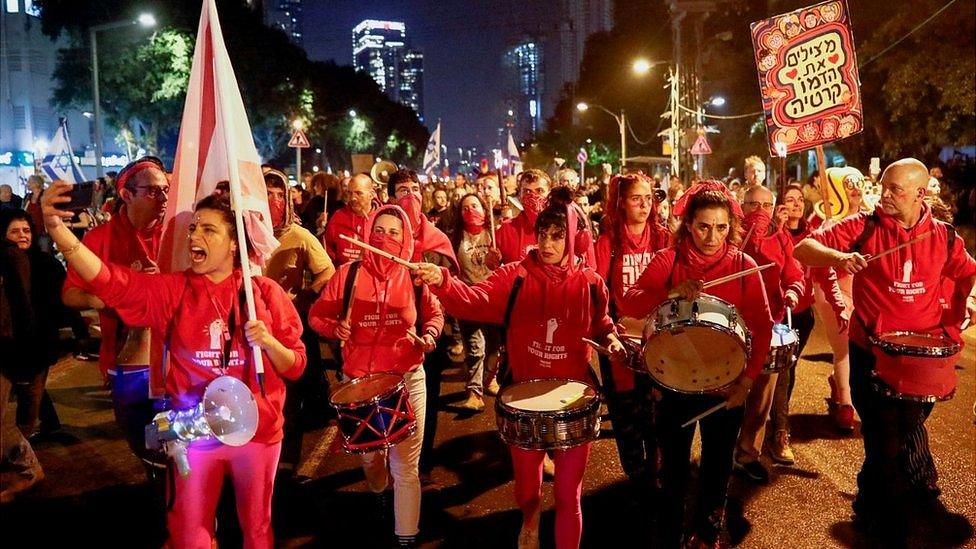
There are fears of a wider far-right agenda to restrict human rights
Others focus their campaign against Israel's occupation of the Palestinian Territories, but these appeared to be in the minority during the protests. The BBC witnessed a minor scuffle break out when one protester objected to others raising Palestinian flags.
Mr Netanyahu dismisses the protests, accusing participants of denying the will of voters.
"Two months ago there was a huge demonstration, the mother of all demonstrations. Millions of people went into the streets in order to vote in the elections," he said last week.
"One of the main topics that they voted on was reforming the judicial system."
He added, "I must say that when we were in the opposition, we did not call for civil war and did not speak about the destruction of the state… I expect the leaders of the opposition to do the same."
The demonstrations bring old dividing lines in Israel back into the open - between secular and religiously observant, and between liberals and nationalists.
While the protesters have packed the streets in Tel Aviv, in Israel overall they have been relegated to the margins over the years. Israelis have moved decisively to the right, according to opinion polls.
Meanwhile Benjamin Netanyahu has become more reliant on the most extreme elements of Israel's religious-nationalist bloc, as once-loyal allies have deserted him. On trial for corruption, he has been left in arguably his weakest position yet as premier.
- Published21 January 2023
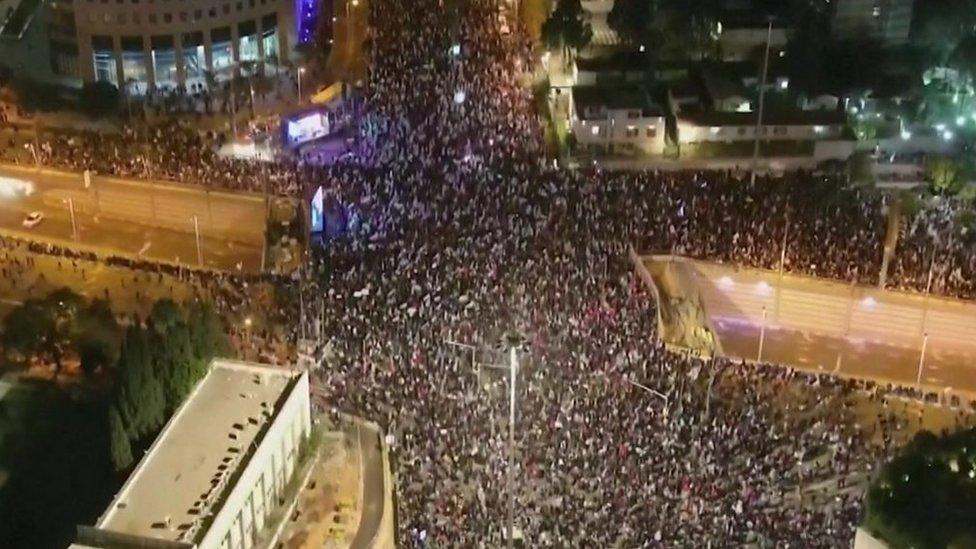
- Published14 January 2023
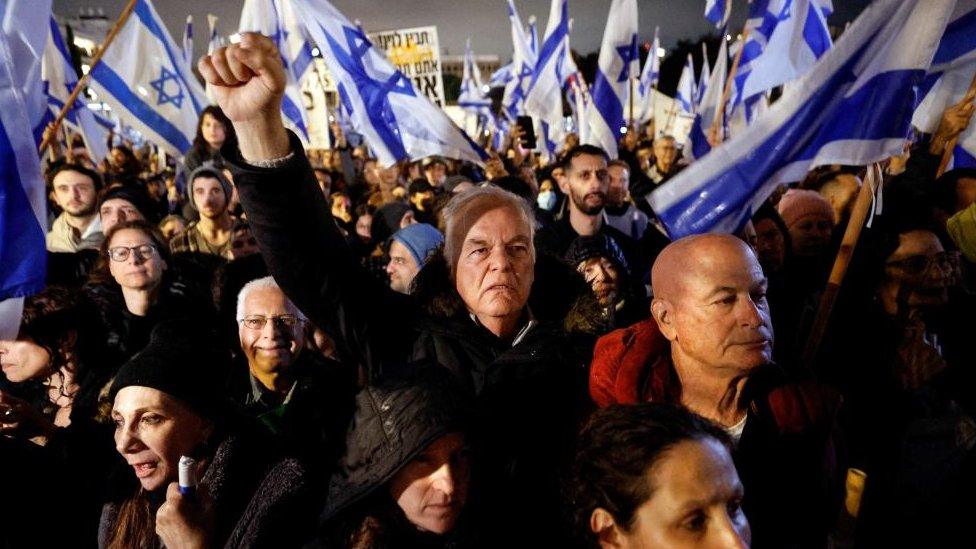
- Published5 January 2023
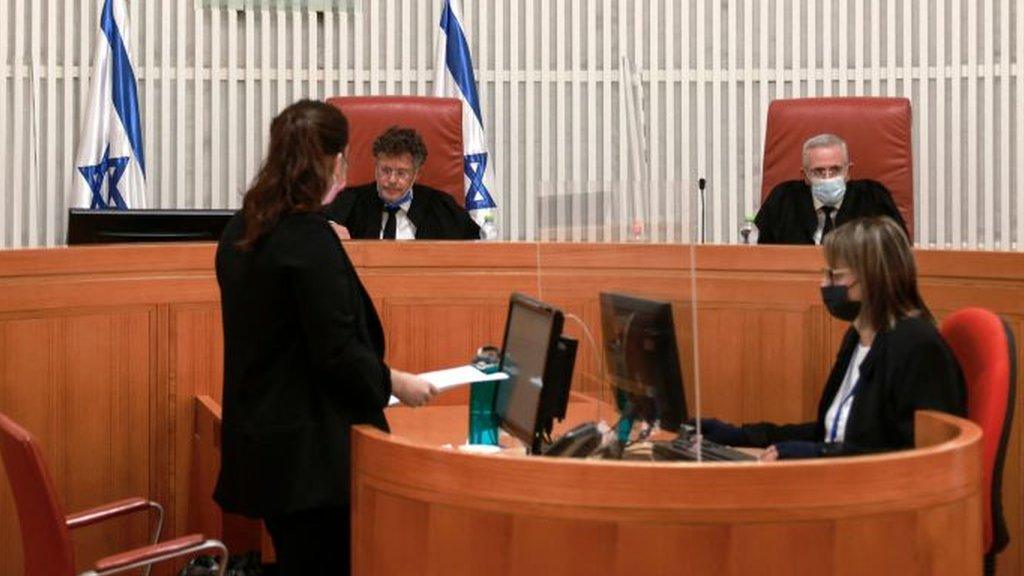
- Published29 December 2022
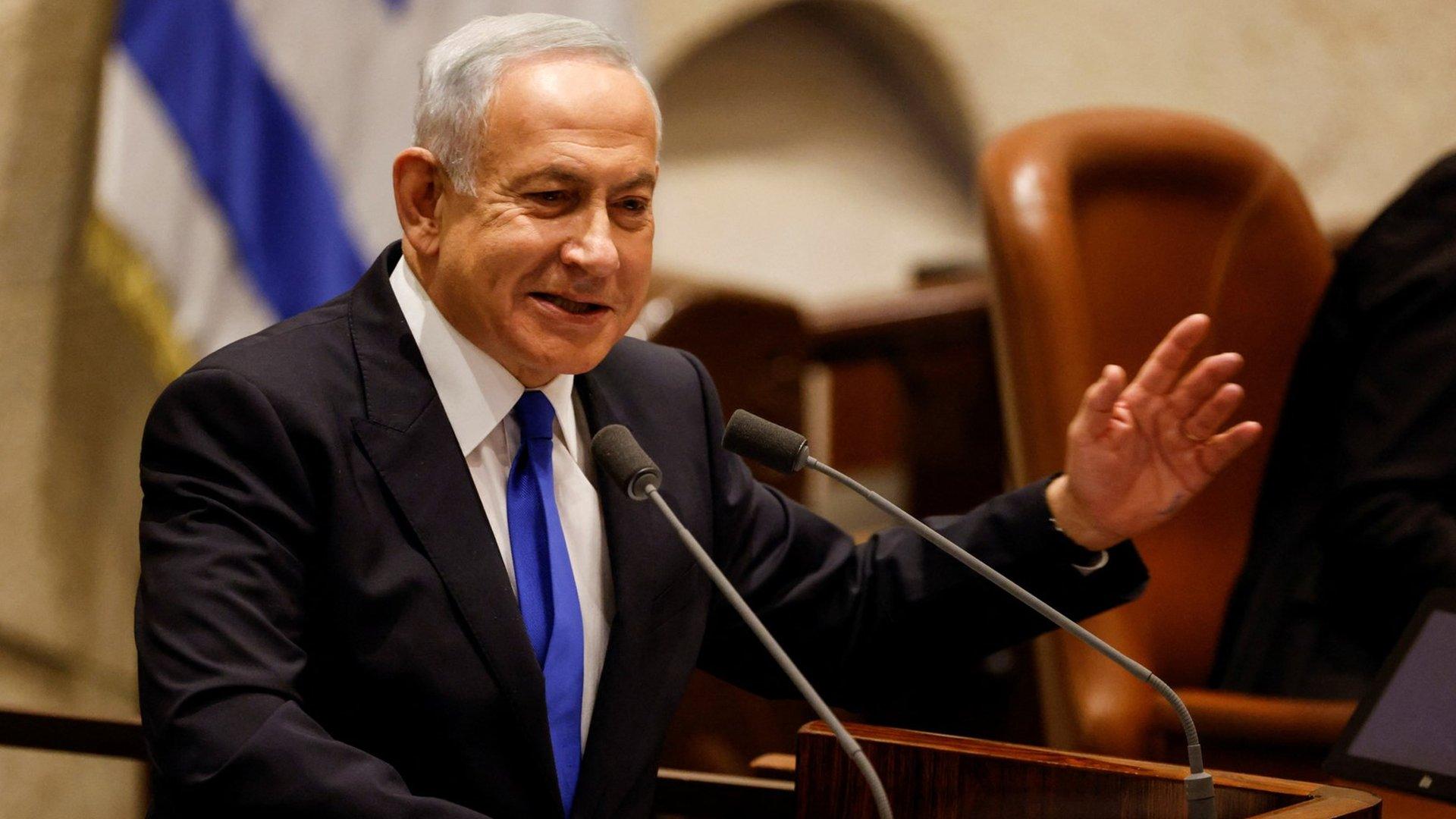
- Published22 December 2022
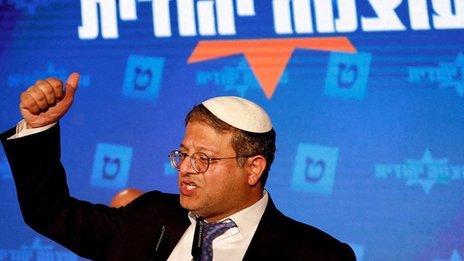
- Published21 November 2024
